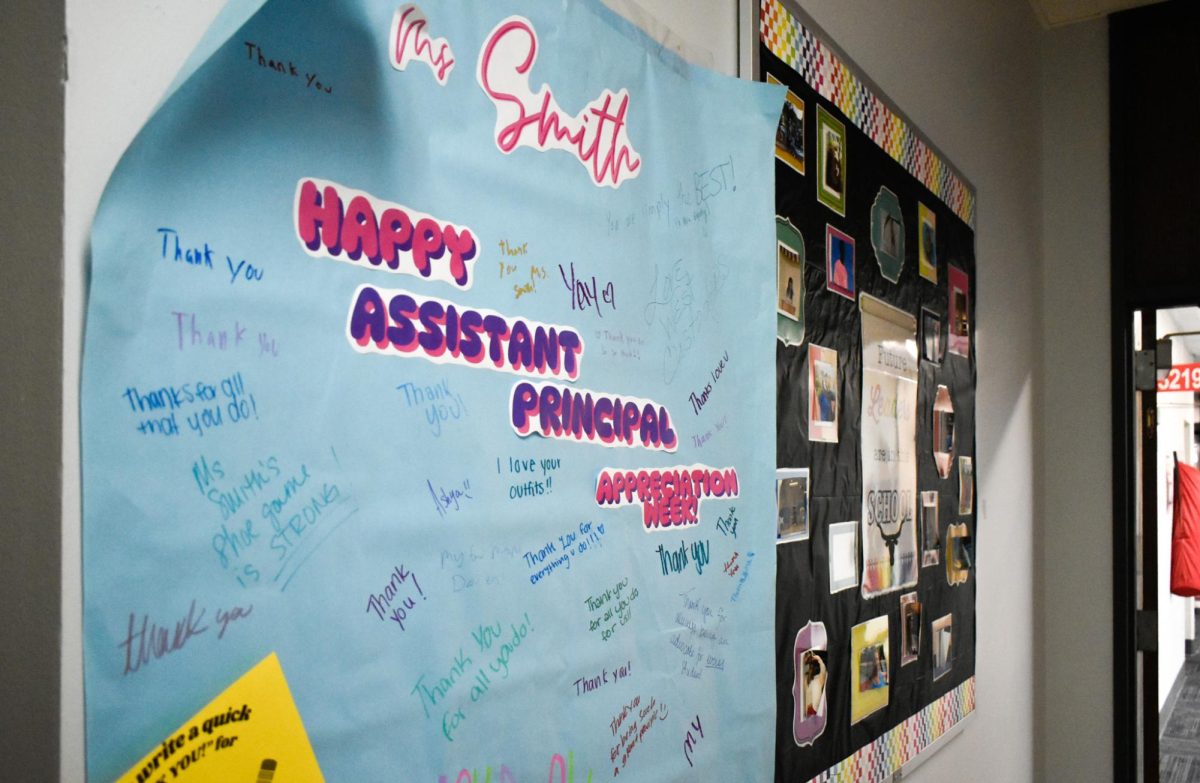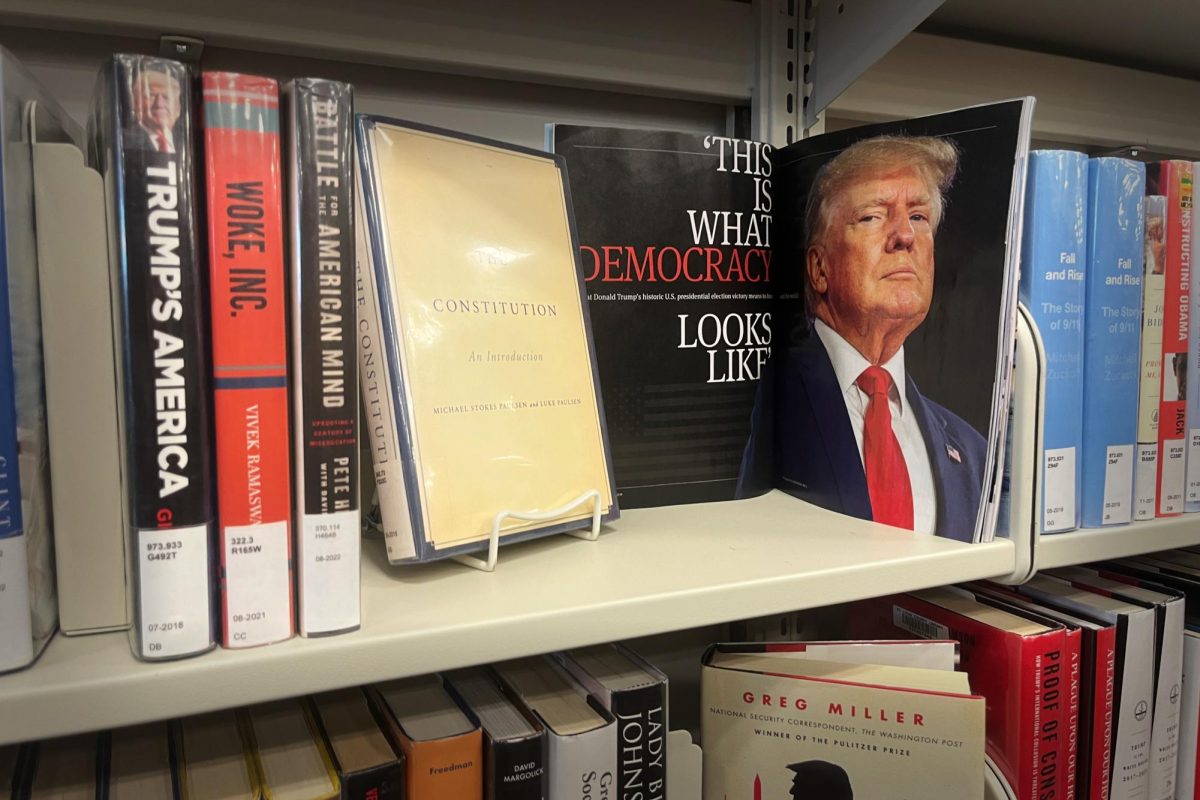A lawsuit filed by the American Humanist Association in 2010 may soon have widespread repercussions concerning the Pledge of Allegiance, effective Sept. 4. The case, against the Acton-Boxborough School District in Massachusetts, dealt with three elementary to middle school aged children feeling coerced into saying “Under God,” despite their family’s traditions and beliefs. This has been disputed previously, but for the first time, the lawyer argued that it was a matter of discrimination rather than the allegation that it “established religion.”
Although there is relatively unanimous agreement for the need for the separation of Church and State in this country, the point of the pledge is completely irrelevant to the matter. In fact, the entire existence of this case as a legitimate problem is a vanity issue that could have been dealt with in the classroom in which it took place. Instead of dealing with major turmoil and injustice, the Supreme Court is reviewing the constitutionality of such problem as this.
To begin, the existence of the Pledge in the first place is rather ludicrous. In all honesty, does the government believe that making children utter a few words every day from the beginning of their school career until graduation will make any of them any more loyal to their country? Do they think reciting the Pledge will make a child deter from being opposed to the government? How many students are really processing anything they are saying when they have been doing since childhood?
There are a few who could be considered an exception. To the general majority, the phrase “Under God” carries little to no gravity, because the prominent religion in America is Protestant Christianity. To the minority, however, religious beliefs and customs or the non-belief in religion could prohibit them from being aloud to say that, or at least be offended by feeling forced to say that. Other than that, there are very few people who would take offense by the inclusion of the phrase.
For those persistent enough to refuse to say the Pledge, there is a simple fix. Knowing and practicing their rights: The First Amendment of the Constitution clearly states the government is absolutely incapable of prohibiting you from practicing religion, and thus cannot make laws incorporating religion. Every individual’s freedom of speech (or lack thereof) is completely protected by this. So, plainly put, if a person wishes to not say anything, there is nothing forcing them to do so.
Despite the fact that this right has existed since 1791, groups of people are still offended because their “patriotism is being brought into question” and that they are “being portrayed as second-class citizens.” Despite the fact that there is little evidence to support these claims, they have managed to establish a foothold in courts with them. Though there might be a minute population that assumes anyone who is not an exact copy of their beliefs and morals is automatically a terrorist, it is unlikely that this is due to the person not wanting to say “under God” when reciting the Pledge. As far as the “second-class citizens” allegation is concerned, it is absolutely an incorrect belief. As for those who feel truly discriminated against, the most radical solution to such a small problem would be to just remove it in general. In fact, the phrase wasn’t even added to the Pledge until 1954.
Disclaimer: The views and opinions expressed in this article are those of the authors and do not necessarily reflect the official position of the Parkway School District.


![Leaning on the podium, superintendent Melissa Schneider speaks to Parkway journalism students during a press conference. Schneider joined Parkway in July after working in the Thompson School District in Colorado. “My plan [to bond with students] is to get things on my calendar as much as possible. For example, being in [classes] is very special to me. I am trying to be opportunistic [meeting] kids [and] being in [the school] buildings. I have all the sports schedules and the fine arts schedules on my calendar, so that when I'm available, I can get to them,” Schneider said.](https://pwestpathfinder.com/wp-content/uploads/2025/09/IMG_5425-1200x943.jpeg)


![Red, white and blue, the American flag holds the values of our democracy. The fight that we once endured has returned, as student journalists and senior correspondents across the country are losing their voices due to government control. “[Are] the White House and [the] government limiting free speech [and] freedom of the press? Yes [they are],” chief communications officer of the Parkway School District and former journalist Elisa Tomich said.](https://pwestpathfinder.com/wp-content/uploads/2025/03/Untitled-design-14.jpg)
![A board in the Parkway West counseling department displays pennants of selective universities. With a wide range of students interested in attending, it’s important that these schools have clear priorities when deciding who to admit. “[Washington University] had the major that I wanted, psychology, philosophy, neuroscience. That's a holistic study of the brain, and [WashU is] the only college in the world that offers that. That's the main reason I wanted to go; I got into that program,” senior Dima Layth said.](https://pwestpathfinder.com/wp-content/uploads/2025/02/Flag-1.png)

![Within the U.S., the busiest shopping period of the year is Cyber Week, the time from Thanksgiving through Black Friday and Cyber Monday. This year, shoppers spent $13.3 billion on Cyber Monday, which is a 7.3% year-over-year increase from 2023. “When I was younger, I would always be out with my mom getting Christmas gifts or just shopping in general. Now, as she has gotten older, I've noticed [that almost] every day, I'll open the front door and there's three packages that my mom has ordered. Part of that is she just doesn't always have the time to go to a store for 30 minutes to an hour, but the other part is when she gets bored, she has easy access to [shopping],” junior Grace Garetson said.](https://pwestpathfinder.com/wp-content/uploads/2024/12/DSC_0249.JPG-1200x801.jpg)

![Senior Sally Peters stands in the history hallway, contemplating her choices in the 2024 United States and Missouri elections on Nov. 5. As a member of Diplomacy Club, Peters has discussed key candidates and issues in contemporary American politics. “[As students], we're starting to become adults. We're realizing how much the policies that are enforced and the laws that make it through the House and Senate are starting to affect us. [Opportunities such as] AP [U.S.Government] and Diplomacy Club [make elections feel] a lot more real,” Diplomacy Club vice president and senior Nidhisha Pejathaya said.](https://pwestpathfinder.com/wp-content/uploads/2024/10/Flag-1-1.png)
![Mounting school pressure can leave many students overworked and overstressed. Schools must give students the necessary resources to help assuage student mental health issues and prevent the development of serious crises. “The biggest thing [schools] can do [to protect student mental health] is offer more time [to do work], like a study hall, or offer more support from teachers so that students don't feel stressed out and can get help in areas that they need,” senior Bhavya Gupta said.](https://pwestpathfinder.com/wp-content/uploads/2024/09/unnamed-4.jpg)
